Showing 1-20 of 36 results

Solar Photovoltaic Options, Opportunities and Challenges
The Solar-Clips video series explores various tips and tools for working with solar photovoltaic (PV) on your farm. This series is designed to help farmers, landowners, and agricultural service providers address the opportunities and challenges associated with on-farm solar deployment and installation. Accompanying University of Maryland Extension fact sheets from this project are below. Solar […]
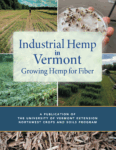
Industrial Hemp In Vermont
While farmers are interested in diversifying crops by growing hemp for fiber, they lack information on the best strategies to grow and process hemp fiber in Vermont, and access new markets. The guide, Industrial Hemp in Vermont, and the videos on this page help close this knowledge gap and overcome barriers for a variety of […]
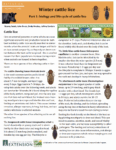
Winter Cattle Lice
Lice infestations during winter housing represent a significant challenge for cattle producers, particularly organic operations raising cattle without chemical inputs. This series of fact sheets from University of Vermont Extension describes the life cycle of cattle lice, control strategies based on integrated pest management (IPM) principles, and the use of essential oils as alternative controls. […]
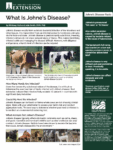
Johne’s Disease Fact Sheets
Johne’s disease is an infectious disease of ruminants that reduces profitability of infected herds and is difficult to control. These University of Vermont fact sheets (combined into a 16-page PDF) answer questions about what Johne's disease is, how it spreads and how to control the disease.
UMass Soil Health Testing Guide
This guide to soil health testing was created to simplify soil health and make soil health more accessible for both educators and stakeholders. This resource is not exhaustive; the emphasis is on simple, free, chemical and physical assessments. Additional information is provided about fee-for-service laboratory tests where appropriate. Some users may find value in reviewing […]
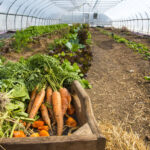
High Tunnel Production Toolkit
The following resources were developed by a team from the University of Vermont and the University of New Hampshire. The full toolkit plus additional resources for producers in Vermont, New Hampshire and Maine are available at the High Tunnel Production Toolkit website.
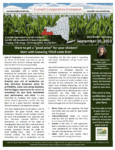
Optimizing the Economic Return of Pasture-Raised Broilers
This set of publications were developed by Cornell University and are intended to help producers of slow-growth and conventional broilers understand their costs of production and track the performance of their flocks. A third fact sheet shares guidance on breaking down a carcass into desired cuts. Calculating Costs of Production Farmers must figure out their […]
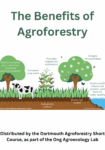
Agroforestry Transition Hub
This video introduces the Agroforestry Transition Hub at Dartmouth College, which focuses on education and on-farm research to promote transitions to agroforestry on farms in the Northeast. The project also created two zines, Common Agroforestry Practices and The Benefits of Agroforestry. Common Agroforestry Practices Zine This zine describes common agroforestry practices and shows their roots […]
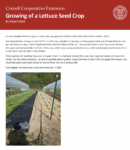
Growing Seed Crops
Northeastern farmers and seed keepers are interested in increasing seed production for on-farm, community, and commercial use. This series of Cornell University fact sheets shares useful production information for a range of vegetable crops. Growing of Lettuce Seed Crop Fact Sheet Basics of Growing Carrots, Beets and Onions for Seed in the Northeast Timing of […]
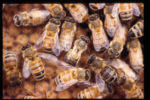
An Introduction to Honey Bee Breeding Program Design
Honey bee breeding is a long-term, labor-intensive process that is becoming more popular and accessible. This 10-page fact sheet from Penn State Extension, An Introduction to Honey Bee Breeding Program Design, introduces beekeepers to the basics of starting a honey bee breeding program.
Adding Value to Locally Grown Products
Farmers often consider adding value to the whole foods produced on their operation as a way to retain a higher percentage of the food dollar on the farm. The fact sheet Adding Value to Locally Grown Products describes how Pennsylvania producers can start and operate a value added enterprise in their farm kitchen or in […]
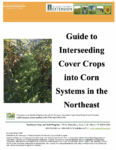
Guide to interseeding cover crops into corn systems in the Northeast
Although substantial gains in cover crop acreage have been seen across the northeast, proper establishment of cover crops continues to be challenging for dairy operations which rely heavily on corn silage. Farmers are interested in exploring the concept of solar corridors that integrates row crops with solid-seeded cover crops in broad strips. The broad strips […]
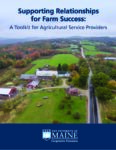
Supporting Relationships for Farm Success
It is not uncommon that the barriers to implementing changes on the farm are not related to production or marketing but rather interpersonal or "non-technical" issues like effective communication, decision-making, goal setting and time management. This toolkit was created by Dr. Leslie Forstadt, University of Maine Cooperative Extension, and Abby Sadauckas, Apple Creek Farm, as […]
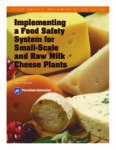
Implementing a Food Safety System for Small-Scale and Raw Milk Cheese Plants
The purpose of this guide is to assist small-scale and raw milk cheesemakers in conducting Hazard Analyses of their processes to ensure they are producing the safest product possible and to meet the requirements of the Food Safety Modernization Act (FSMA). The author, Dr. Kerry E. Kaylegian of the Pennsylvania State University, created this resource […]
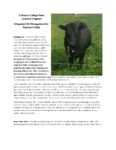
Integrated Fly Management for Pastured Cattle
In grazing systems, flies can not only be a nuisance for cattle but can also cause herd health problems like pink eye, and reduce milk production and weight gain. Matt Steiman, livestock manager at Dickinson College Farm worked with Dr. Jason Smith, entomologist and horticultural specialist at Milton Hershey School to develop this fact sheet […]

Cornell Soil Health Assessment
The Cornell soil health assessment was created to help farmers develop appropriate management solutions to build healthy soils. Focusing on soil health helps improve productivity, reduces the need for external inputs, and increases a farm's resilience to extreme weather events.
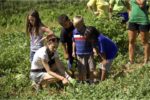
Vermont Food Education Every Day
Includes guides for farmers and food service personnel working to increase local food in schools.
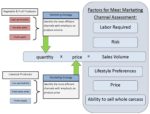
Livestock Marketing Channel Assessment Tool
This tool provides livestock producers with a way to identify the most profitable marketing channels.
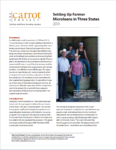
Case Studies on Setting Up Microloans
According to a study conducted by The Carrot Project, 25 percent of farmers that request financing are denied access to credit needed for start-up and expansion costs. In 2009 and 2010, the Massachusetts-based nonprofit set up collaborative microloan programs in Massachusetts, Maine and Vermont. They facilitated 15 loans, with a median loan size of $12,300, […]
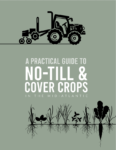
A Practical Guide to No-Till and Cover Crops in the Mid-Atlantic
No-till and cover crops are among the most cost effective tools to reverse soil and carbon loss and improve soil health; the economic, agronomic and environmental benefits of these practices are well known within the farming community. Transitioning from conventional farming to no-till, and incorporating the use of cover crops, requires a higher level of […]